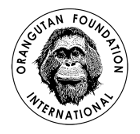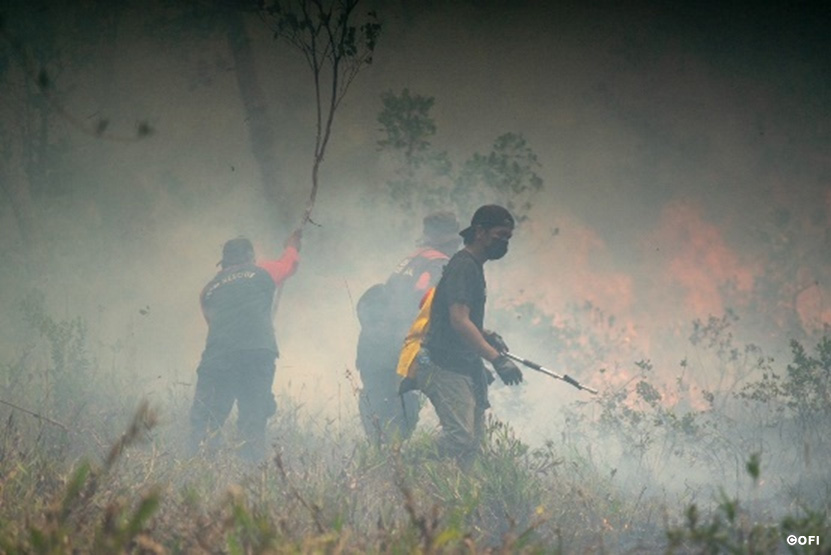Dear Friend of OFI, The world is on fire. Everywhere you look, somewhere, there is a massive wildfire burning. As I write this sitting at my desk in Camp Leakey, fires are currently burning in Canada, Australia, and other locations. Unfortunately, the island of Borneo is not an exception to the recent occurrence of massive… Continue reading 2024 Spring Fire Prevention & Fire Fighting Appeal
Author: Dr. Biruté Mary Galdikas
Passing of OFI Board Member and Hollywood Legend: Norman Lear
Orangutan Foundation International (OFI) is greatly saddened by the passing of Norman Lear, a legendary television and film producer and writer, as well as longtime friend of OFI. Norman was 101 years old when he died at home on December 5, 2023. We extend our deepest sympathies to his family and loved ones. Several years… Continue reading Passing of OFI Board Member and Hollywood Legend: Norman Lear
Fall Appeal 2023
Dear Friends of OFI, The babies need our help! Each day, thousands of acres of tropical rain forests are clear‐cut, burned, and reduced to ash. The scorched earth, once home to variegated wildlife, becomes a deafeningly silent monoculture plantation. Wild orangutans who once roamed these now stricken ashen landscapes are starving, their deaths often carried… Continue reading Fall Appeal 2023
Fall – Winter Appeal 2022
For the last 51 years, Orangutan Foundation International (OFI) has been working to save orangutans and their endangered tropical rain forest habitat. Without forest, wild orangutans cannot survive. During the past years we have made tremendous progress protecting wild populations of orangutans and forests in Borneo. But it is not enough! Unfortunately, in many ways… Continue reading Fall – Winter Appeal 2022
Kusasi: Survivor
Kusasi was an extraordinary orangutan. Unlike most orangutans living in the wild, he was the star of his own film called “Kusasi: From Orphan to King,” which initially aired on BBC and PBS in 2005, subsequently shown worldwide. Kusasi also became famous as the dominant Camp Leakey adult male orangutan. Kusasi first came to Camp… Continue reading Kusasi: Survivor
Spring 2022 Appeal: Protect and Patrol
You would be hard-pressed to find people more dedicated, resilient, and selfless than the Orangutan Foundation International (OFI) patrol rangers. Stationed at remote wilderness posts across more than one million acres of forest in Central Indonesian Borneo (Central Kalimantan), OFI’s indigenous rangers are the heart of our Protect and Patrol Program. This program plays a… Continue reading Spring 2022 Appeal: Protect and Patrol
EMPLOYEE SPOTLIGHT: IBU RENIE
Jakarta, the current capital of Indonesia. A city famed for its hustle and bustle, roads jam packed with motorbikes and cars each vying for space, sidewalks overflowing with street vendors and people. It’s easy to be overwhelmed here. In amongst this sits an unassuming side street where one will find an equally unassuming house. Finding… Continue reading EMPLOYEE SPOTLIGHT: IBU RENIE
2021 Seed And Sapling Appeal
As I sit here at my desk writing this letter to you, I reflect on where I was almost exactly fifty years ago this month. It was November 1971 when I arrived at the place I named Camp Leakey. After three years of waiting, I had finally arrived in Borneo, the large forested tropical island… Continue reading 2021 Seed And Sapling Appeal
Threats to the Park Escalated in the 1980’s!
In the 1970s the situation facing orangutans and the existence of rainforest seemed somewhat bleak. Little did I know! The situation in the 70s was actually the calm before the storm. Suddenly, sometime in the late 1980s, everything seemed to go haywire. The destruction of the forest around the National Park accelerated. Gold was discovered… Continue reading Threats to the Park Escalated in the 1980’s!
First Mother: Siswoyo
In the mid 1970s, two retired Indonesian Army Generals, one of whom had been the very popular Chief of Police for all of Indonesia, gave me their four orangutans. One of the retired Generals, who spoke English quite well because he had been a prisoner in Europe during the Second World War after being captured… Continue reading First Mother: Siswoyo










